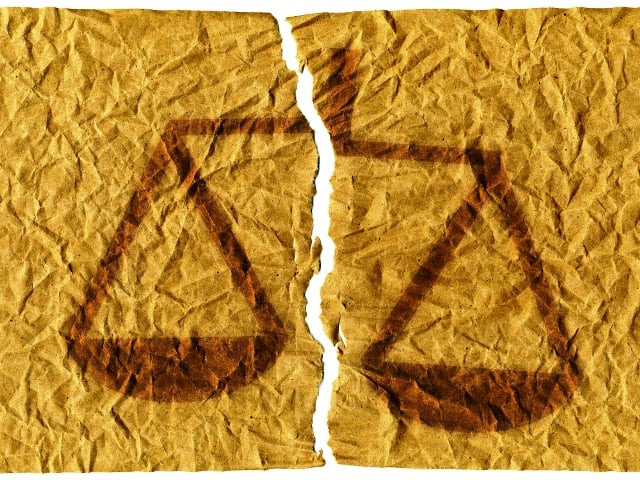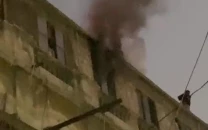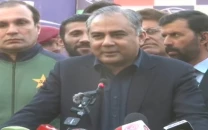Rape, mutilation: Pakistan's tribal justice for women
Pakistan's tribal justice system is instinctively unsympathetic to women.

Asma, from impoverished Kohaur Junobi village in Pakistan's south, was mutilated because her husband was involved in a dispute with his relatives, and they wanted revenge. Her fate is familiar in parts of Pakistan's remote and feudal agricultural belts, where women are often used as bargaining chips in family feuds, and where the level of violence they face is increasing in frequency and brutality.
At the hospital in a nearby Multan town, Asma's shocked parents sat quietly by her bedside and struggled to explain what the future holds for their now disfigured daughter. "I don't know what will happen to her when she leaves here," Asma's father, Ghulam Mustafa, said, in a dilapidated ward heavy with the smell of antiseptic and blood, where other women, doused with acid or kerosene by relatives or fellow villagers, awaited an equally uncertain future. Asked if Asma will return to her husband, her father remains silent.
(Read: Plight of Pakistani women)
Pakistan is the world's third-most dangerous country for women, after Afghanistan and the Democratic Republic of Congo,based on a survey conducted by the Thomson Reuters Foundation. In its 2010 report, the Human Rights Commission of Pakistan said almost 800 women were victims of "honour killings" --murders aimed at preserving the honour of male relatives -- and 2,900 women reported raped -- almost eight a day. The bulk, or almost 2,600, were raped in Punjab alone,Pakistan's most populous province.
And the numbers are rising: media reports say crimes against women have risen 18 percent in the year to May and the HRC believes its figures represent only a fraction of the attacks which take place across the country.
Dr. Farzana Bari, director of Gender Studies at Quaid-e-AzamUniversity, says Pakistan's patriarchal society often condones discrimination against women, which is more prevalent among poor and uneducated rural families.
That mindset can often influence the police and judiciary, which sometimes turn a blind eye to honour killings or rapes carried out to "punish" women. "I think honour killings are a symptom of vigilante justice," she said. And vigilante justice occurs in anenvironment where the state is unable to enforce its writ."
Tribal justice
In rural areas, women are often shut out of the justice system, which is compromised by powerful landowners and feudal lords who dominate a hierarchy that makes it difficult -- and deadly -- for those with little education or social standing to speak out. Families or tribes then often take justice in their own hands, presiding over "jirgas" or "panchayats" -- gatherings of elders that hand down punishments that include rape, killing or barter of women for crimes that include falling in love with a man deemed inappropriate or besmirching family honour. Some women are maimed just to settle scores.
Members of the panchayat systems say the tradition is hard to shake because it is entrenched in the local culture and also because it is much more efficient than the regular courts. "In the settled areas there are courts but people can't always get justice or compensation," said lawyer and tribal elder Karim Masoud, who presides over both panchayat settlements and the mainstream court system. "With the jirgas, they can get compensation, and it takes less time to settle a dispute. It's fairer and people don't have to use bribes to get justice."
Zarmuhamad Afridi, who also attends jirga rulings in Pakistan's northern tribal belt and works within the mainstream court system, said the jirga system survives because in many parts of Pakistan, a man's honour is intrinsically linked to how his wife or daughter behave. "If a couple is not married and they are having a relationship, a jirga may rule that the woman should be shot," Afridi said. "That is okay for many, because they have to protect family honour."
The slightest transgression by a woman -- being seen talking to a man on the street, perhaps, or having an unknown phone number in a mobile -- can bring harsh punishment and social ostracism of the family, he says, making the quick, harsh judgment of the panchayats popular. "Women are cherished here," he said. "Men protect them. If a woman is out of her house then what is she doing? That is what people think here."
Many women are unable to speak out because they lack the support and education to understand their rights, activists say. But even those who dare often get nowhere. The most high profile instance of a violent ruling by a tribal court against a woman is that of the gang rape of Mukhtaran Mai, which took place near Multan in 2002. Mai was allegedly attacked to settle a matter of village honor, as decided by a panchayat. She was then paraded naked through her village.
Unlike most rape victims, who face stark recriminations for speaking out, and who are sometimes even expected to commit suicide, she filed a criminal case against 14 men. Six men were convicted and sentenced to death that year, but in 2005 the Lahore High Court commuted one sentence to life in prison and acquitted the rest. Pakistan's Supreme Court upheld that decision in April this year, in what rights activists said was a crushing blow towomen's and minority rights in Pakistan. The men were released days later. Mai said she is afraid they will return and kill her.
Ali Dayan Hasan, senior researcher at Human Rights Watch's South Asia division, said the lack of justice for women in cases like such as Mai's is "a structural failing of the criminal justice system". "The verdict also lays bare the misogyny of Pakistan's judicial system because it is a judiciary that is instinctively unsympathetic to women."



















COMMENTS
Comments are moderated and generally will be posted if they are on-topic and not abusive.
For more information, please see our Comments FAQ